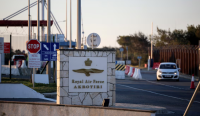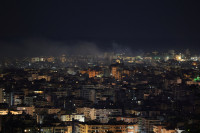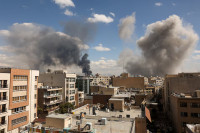World
Portugal investigates causes of cable car crash that killed 17
Thirty-eight people were involved in the accident, with 15 killed at the scene while two more died in hospital overnight, said Margarida Martins, head of the city’s emergency services.
Reuters
Portuguese authorities were investigating on Thursday what caused a funicular railway popular with tourists to derail and hurtle down a hill, killing at least 17 people and injuring 21 when it crashed into a building.
Footage from the site showed the mangled wreckage of the yellow tram-like funicular, which carries people up and down a steep hillside in the Portuguese capital, lying where it had left the track and hit a building, just metres from another car at the bottom of the hill.
Lisbon resident Abel Esteves, 75, and his wife and grandson were among 40 passengers in the car at the bottom of the hill who saw the derailed carriage careering towards them.
"When I saw another carriage coming down, I told my wife: 'We're all going to die here'," he said. "It picked up a brutal speed, took a slight turn and hit the building with a loud bang."
Flags flew at half-mast as Portugal declared a day of mourning for the victims. The city's remaining two lines were shut for inspections, authorities said.
Thirty-eight people were involved in the accident, with 15 killed at the scene while two more died in hospital overnight, said Margarida Martins, head of the city's emergency services.
Among the injured were four Portuguese, two Germans, two Spanish, one Korean, one Cape Verdean, one Canadian, one Italian, one French, one Swiss and one Moroccan, she said.
The German foreign ministry said in a statement that it assumed some of its citizens were among the victims.
Eliane Chaves, a Brazilian who has lived in Lisbon for 20 years, said she walked past the funicular every day.
"It is truly sad," she said, as tears streamed down her cheeks. "People say that it was negligence but it was not negligence. They supervise it thoroughly. It was an accident, just like a plane or car accident can happen."
BRAKING SYSTEM
Manuel Leal, leader of the Fectrans union, told local TV that workers on the Gloria railway - one of the symbols of the city - had complained about problems with the funicular's haulage cable tension that made braking difficult, but it was too early to say if that was the cause of the crash. The municipal public transport company Carris said in a statement that "all maintenance protocols have been carried out", including monthly and weekly maintenance programmes and daily inspections.
At the scene of the crash police could be seen taking photos of the wreckage as well as inspecting the braking system on the undamaged car nearby.
The line's two cars, each capable of carrying around 40 people, are attached to opposite ends of a haulage cable with traction provided by electric motors on the cars that counterbalance each other.
As the cable apparently snapped, the car that was coming down the 265-metre slope lost its ability to brake and derailed on a turn, crashing into a corner building.
The car at the bottom of the line jolted back a couple of metres (yards) and was apparently undamaged, but video from bystanders showed several passengers jumping out of its windows.
The line, which opened in 1885, connects Lisbon's downtown area near the Restauradores Square with the Bairro Alto, or Upper Quarter, famous for its vibrant nightlife.
The Gloria line transports around 3 million people annually, according to the town hall.
Authorities did not identify the victims or disclose their nationalities, but said some foreign nationals were among the dead.
Some local media reported that a German family-of-three was among the victims, including a three-year-old child who suffered minor injuries, while the father died and the mother was seriously hurt.
Portugal, and Lisbon in particular, has experienced a tourism boom in the past decade, with visitors cramming the popular downtown area in the summer months.




 14.24°C Kathmandu
14.24°C Kathmandu














